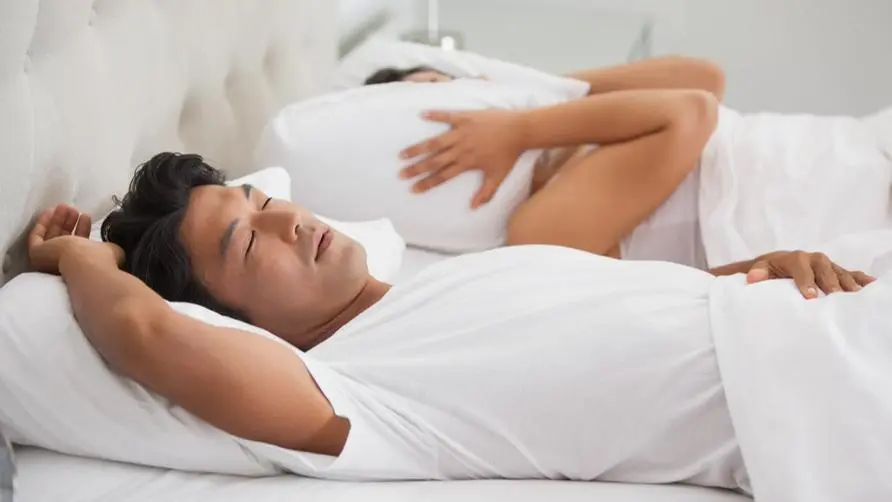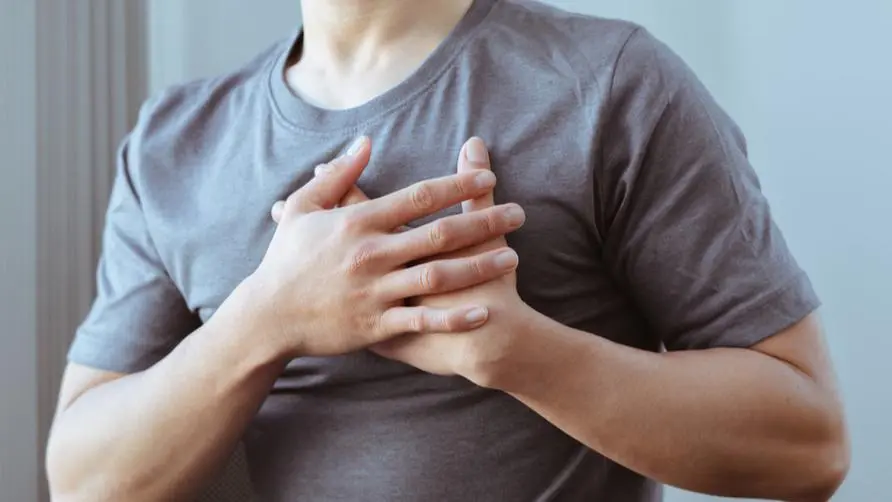Sleep apnea, stroke in younger and middle-aged adults may be caused by snoring

Snoring is very common. According to statistics, 45% of adults snore occasionally, and 25% snore severely. Not only does it affect the sleep quality of your bed partner or other family members, it may also be accompanied by respiratory arrest, leading to a risk of stroke.
Dr. Cai Ming-shao, director of the Department of Otolaryngology at Chiayi Chang Gung Memorial Hospital, pointed out that there are approximately 30,000 new stroke patients in Taiwan every year, and the proportion of patients under 45 years old has doubled from 3% to 5% to 10%, and there is a trend of younger patients. There was a clinical case of a 45-year-old young man. His family complained that he had been snoring since his marriage. However, because he fell asleep easily every day and did not feel any discomfort, no sleep test was performed. However, a severe stroke occurred without warning, and the ability to move and speak was lost. The family also lost its financial support, causing great pressure and burden on the family.
Dr. Cai Mingshao urges that snoring is definitely not a good sleep. You need to pay attention to signs such as snoring at night, lack of energy during the day, and excessive BMI. It may be “sleep apnea”, and patients who are not treated for sleep apnea have a higher risk of stroke. 3 times higher than the average person.
Poor sleep can lead to organ inflammation. Good sleep and adequate sleep can reduce the risk of stroke.
Dr. Cai said that patients with sleep apnea may wake up more than a hundred times a night due to hypoxia caused by the collapse of the upper respiratory tract muscles after falling asleep, and they may be unable to enter a deep sleep period. This allows the body to truly rest and metabolize waste in the body, causing the body to accumulate waste and causing organ damage. Inflammation and damage of blood vessels, etc. However, inflammatory substances are usually proteins and make the blood thicker, which increases the risk of heart disease, stroke, high blood pressure, obesity, etc., creating a vicious cycle.
Dr. Cai, who treats more than 700 newly diagnosed sleep apnea patients every year, said that those with mild symptoms can regain their health through losing weight, exercising, improving living habits, etc.; while those with severe symptoms and those with moderate to severe symptoms need to use a positive pressure respirator. or undergo surgical treatment. Proper treatment will not only improve your snoring at night, but also make you more energetic during the day. In addition, getting a good night’s sleep can also improve heart function and blood circulation. Some patients with high blood pressure will also get better control, which will reduce the risk of stroke.
Snoring, obesity, and not getting enough sleep are the three major signs of sleep apnea
Hong Xiaojing, a senior sleep technician at Colin Sleeping Beauty, said that there was a patient who was wearing a positive-pressure respirator because the sleep technician found that the central nervous system index in the data uploaded by the respirator was abnormal. , and also eliminates the risk of a stroke.
Hong Xiaojing reminded that lack of sleep and sleep disorders will affect health and mood in many ways. Good sleep quality is a necessary condition for good health. If you have the three major signs of sleep apnea: snoring, obesity, and not getting enough sleep, please seek treatment as soon as possible. Seek medical advice or perform at-home sleep testing to avoid serious health hazards.





